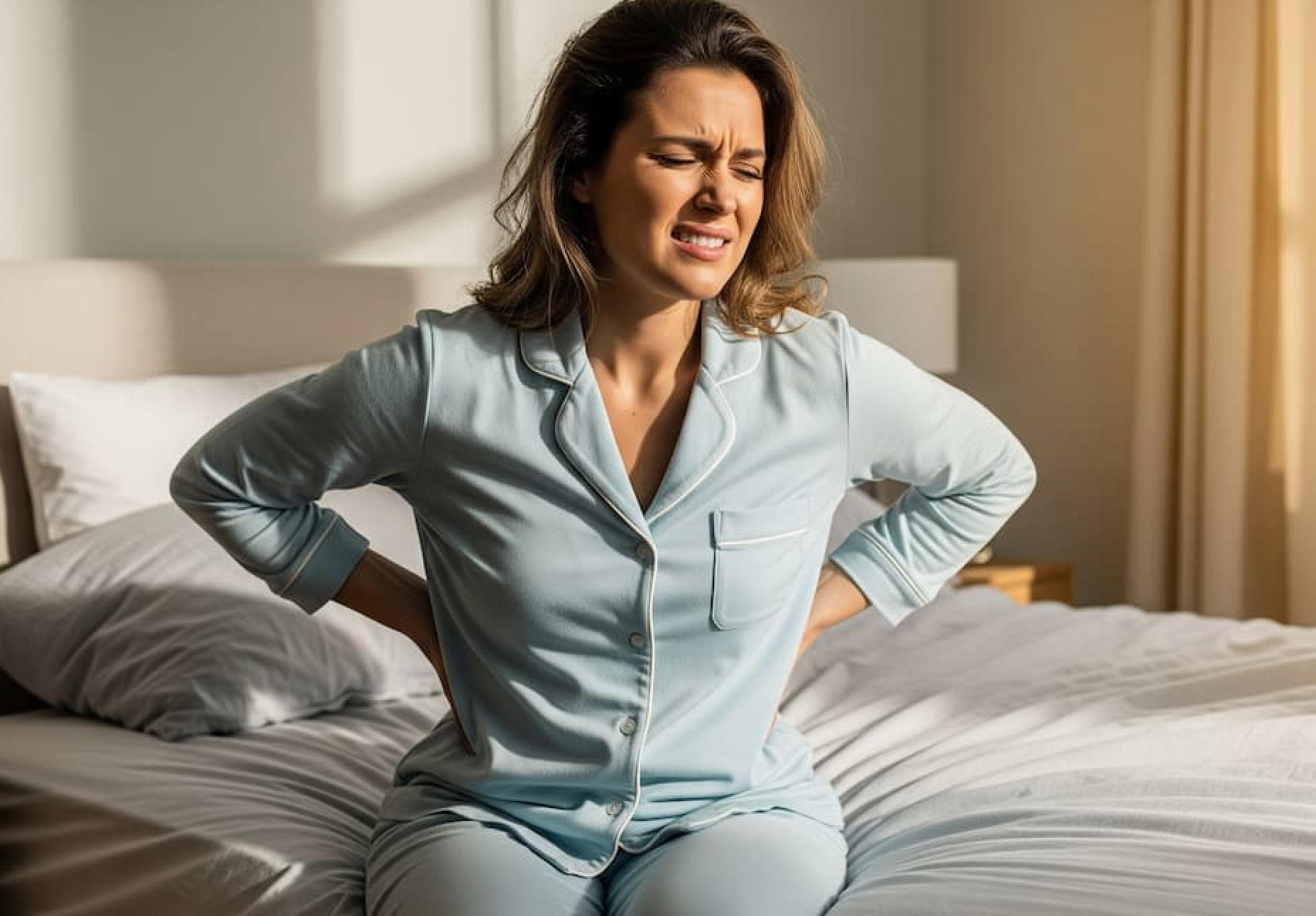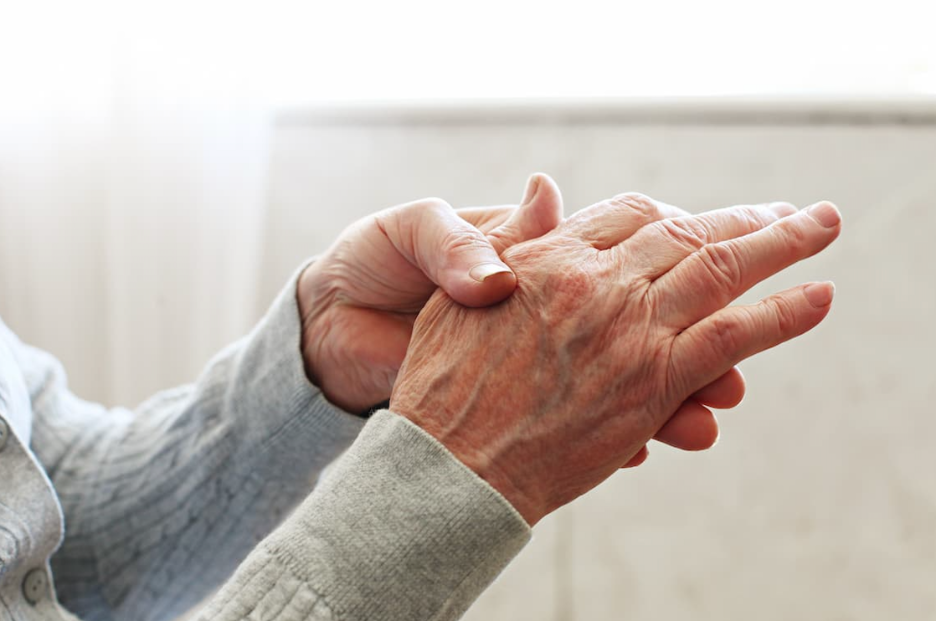
You’re Not “Too Young” for Psoriatic Arthritis
PsA doesn’t just affect older adults, and Dayna wants young people to know that advocating for their symptoms can change their future.
By
Lana Pine| Published on November 10, 2025
12 min read
When you’re young, it’s easy to brush off unusual symptoms — especially when life is full of school, social plans and everything in between. For 25-year-old Dayna, what started as a few tiny red bumps after a music festival seemed like nothing more than bug bites. But as the spots spread, turned painful and began to take over her skin, she quickly learned how challenging — and isolating — psoriasis can be, especially when it’s misdiagnosed or overlooked. What she didn’t realize then was that this moment would be the beginning of a life-changing journey that would reshape her future as both a patient and a future doctor.
Today, Dayna is using her experience with psoriasis and psoriatic arthritis (PsA) to advocate for herself and others navigating chronic illness at a young age. From misdiagnoses to monthslong waits for specialty care, she knows firsthand how difficult it can be to get answers — and how critical it is to trust your body, speak up and push for the care you deserve.
Can you share what your first symptoms were and why you think they were easy to overlook as a young adult?
Dayna: I first began experiencing my psoriasis symptoms in April 2022. I was 21 years old, in college, and had just gotten back from Coachella, so I actually thought the little red, itchy dots on my skin were bedbugs from our AirBnb.
I did what was obvious to me — consult Google, which told me that bug bites typically go away in 2 weeks, so I thought it would be fine. I tried a wait-and-see approach, but the spots got worse, turned scaly, and spread all over my arms and legs. It felt like my skin was on fire. When I finally saw a primary care provider, they thought I might be having a contact dermatitis reaction from the grass, but it got worse, so I found a dermatologist who diagnosed me with psoriasis after months of patience on the patient waitlist.
A caveat: Psoriasis is not contagious; I did not “catch it” at Coachella, but it has both genetic and environmental risk factors. Even though there is no way to determine the root cause of my psoriasis, it could be plausible that the environmental conditions, the physical stress or asymptomatic sickness could have triggered my first psoriasis flare.
Just a couple months after my first plaques, my skin was covered in plaques from head to toe, at 40% body surface area, even affecting high-impact areas such as my scalp and intimate areas. I felt horrible and would get stares everywhere I went. At 21 years old, my self-esteem plummeted. Working out was painful since the sweat made my skin feel like it burned, and sleeping was so difficult due to the irritation and being fully covered in topical treatments. Some nights, the only way I would get relief is by lying surrounded by ice packs.
Luckily, after trying a few topical options that weren’t a fit for me, I started a biologic that helped clear up my psoriasis pretty quickly. After my first dose, my skin returned to 100% skin clearance.
I remember feeling so relieved, like a normal young girl who could wear shorts, bikinis and tank tops again without feeling like a monster. That sense of relief and normalcy was temporary, and the lessons I learned about not overlooking my own symptoms stuck with me too, luckily.
The following year, I started to experience pretty bad back pain. I attributed it to the many hours spent studying for the MCAT, and the overall stress of the application process — things that were easy to blame.
But, knowing that 30% of people with psoriasis can go on to develop PsA, I stayed close with my doctors about the pain. My primary care doctor suspected the pain was due to my sedentary lifestyle, but after months of physical therapy with only worsening, eventually debilitating pain, I had a feeling that we didn’t capture the whole picture of what was going on.
Living in a low-income area with limited health resources, it was difficult to access specialty care. After moving to Chicago to begin my medical education, I was able to meet with my first rheumatologist, resulting in an X-ray that led to my PsA diagnosis.
How has living with PsA affected your plans for becoming a doctor and your vision for the future?
Dayna: On the first day of my medical school orientation, I was officially diagnosed with PsA. By this time, I had suffered tremendously with the pain and fatigue from my diagnoses and had even had conversations with my school’s dean about potentially deferring medical school — it was an incredibly tough and lonely time for me.
How could I excel in a rigorous medical program while not being able to sleep more than one to three hours, while not being able to focus due to the debilitating pain, while not being able to walk over 15 minutes before my back screamed for me to sit down? Thankfully, I have regained stability in my health and life after beginning my second biologic, which gave me back my physical health and maintained my skin clearance.
While the PsA diagnosis did close the chapter of my life without diagnosed physical disability, little did I know how it would give me a new sense of purpose in my passions for self-advocacy and mentoring students going through similar situations.The experiences I had with my diagnoses, in particular with advocating for my second diagnosis of PsA after symptoms began, showed me another important side of the role of health care provider, one that I am eager to fulfill. Being a great doctor is about so much more than just the scientific knowledge. It’s also about listening to your patients and learning their journey to you — developing a deep understanding of your patients’ experiences, struggles and lifestyle, so you can cocreate care plans that are tailored to their needs and goals.
I’m passionate about bringing my passion for patient advocacy into whatever field I choose, and am determined to continue learning from and advocating for my patients, in hopes of dismantling barriers between them and the care they deserve.
A survey from UCB found that many young people with PsA struggle with mental health and appearance concerns. How have these issues affected your self-esteem and relationships?
Dayna: Before I began taking a biologic, I struggled with some of my more visible symptoms, and how people would stare, sometimes in disgust, at my red spots and plaques, but being social was also incredibly difficult when every day was a battle with pain and fatigue, a struggle that became even more prevalent for me as I began my medical education as a PsA patient.
All of that together really impacted my self-esteem. Here I was in medical school, surrounded by people ecstatic to make new friends and explore a new city, and I was barely able to go to class and finish my studying before curling up with my heating pad.
I often feel like people don’t picture young people when they think of someone impacted by PsA, in particular. I always find it really helpful to find other people I can relate to in the psoriatic disease community, people my age, and I appreciated that UCB took the time to hear collectively from people like me. I think for a lot of us fatigue hits us at a point when our peers are thriving and full of energy, and we expect to feel that way ourselves, so it’s very frustrating. It leaves us feeling left behind and even isolated. When my flares were less predictable, I had an extremely hard time committing to social events — when my body yearned for rest, I had to give in.
But, since starting on Bimzelx for my PsA, I’ve found I have the energy and enough relief from my pain so I can get out there again. I cocaptained my school’s intramural volleyball team, I walked to class in stride, I regained the confidence to chat with my classmates and get together after class. Months before starting treatment, walking across the room felt exhausting, and now, it feels like I have my mobility back. I know everyone’s body is different and Bimzelx may not be the right treatment for everyone. This is why it’s important to find a doctor that you trust, that you know will advocate for you, and I’m grateful to have found an option that works for me currently.
As both a patient and a future physician, what lessons have you learned about self-advocacy in the health care system?
Dayna: Through my own diagnosis and psoriatic disease journey, I’ve learned how important it is to advocate for yourself, learn what you can and speak up to participate in your care.
While a good doctor is there to guide and support you, you can be a partner with them in making decisions about your treatment and care. Never be afraid to ask questions or bring up symptoms or concerns. Doing your research and trusting your body and feelings can make all the difference in finding the diagnosis or treatment that could change your life for the better. Although, I understand that this condition comes with so much fatigue and pain. Some days, as much as I wanted to learn how to better advocate for myself, I didn’t have the energy to learn more, to call my insurance company, to look into prescription support programs. So give yourself grace when things get rough.
What advice would you give to other young people who may be experiencing symptoms but haven’t sought help yet?
Trust how you are feeling, and try to see a health care provider for it. I know there are so many barriers to seeing a specialist, from my own experiences living in a low-resource area, and even moving to an area with more specialty access but getting hit with six-month-long physician waitlists — but you deserve your best health. You deserve to know what’s going on. Ask for appointment cancellations, ask to be put on a waitlist, whatever you need to see a provider. My diagnosis journey felt long (although still shorter than many others’ diagnosis journeys) and I got to a point in my symptoms where I wasn’t feeling like myself anymore. I now know not to shrug things off. You know your body, and in situations like psoriatic disease, the earlier you notice these symptoms, the earlier you can intervene.
I also always tell people there are so many great advocacy organizations. Groups like National Psoriasis Foundation and the Arthritis Foundation have been a light for me, offering information sharing, support and even helping me navigate treatment questions. It may seem like a lonely journey, but there are many of us out there who can and do help each other through it.
What do you hope people understand better about PsA, especially when it affects younger generations like Gen Z and Millennials?
Dayna: The most important thing I would tell someone about PsA is that while it may not be visible, it can be totally debilitating, and it can happen at any age — don’t discount the possibility just because you’re young. Give yourself compassion and make sure you listen to your body. Be persistent with your health care professionals when it comes to sharing symptoms, and don’t shrug symptoms off because they aren’t visible. You deserve to live the life you want to live.
Open dialogues are one of the things I encourage most — the more awareness there is, the more support there can be.

